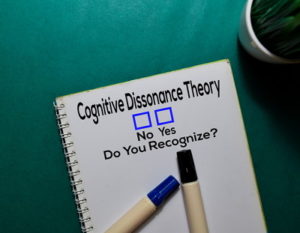 It is hardly going to surprise most people that casinos are designed to make money. ‘The House always wins’ isn’t just a random saying, it is very much a truth. Whether it be the House Edge, which is designed to ensure that the casino makes a profit on games over a long period of time regardless of the decisions that you make, or the fact that physical casinos don’t have windows or clocks so you don’t know how much time has passed, everything is set up in order to ensure that you lose your money and they win it.
It is hardly going to surprise most people that casinos are designed to make money. ‘The House always wins’ isn’t just a random saying, it is very much a truth. Whether it be the House Edge, which is designed to ensure that the casino makes a profit on games over a long period of time regardless of the decisions that you make, or the fact that physical casinos don’t have windows or clocks so you don’t know how much time has passed, everything is set up in order to ensure that you lose your money and they win it.
This even stretches out to the manner in which casino games are designed, distorting reality in order to trick you into thinking that you’re doing better than you actually are. Even the fact that gambling is thought of as a ‘game of chance’, in which winning or losing is a matter of luck, falls into this bracket. In truth, there is no luck involved; gamble for long enough and you’re almost certainly going to lose more money than you win because that is the way that casinos are set up. You are being deceived every time you bet, but how?
Uncertainty Is Its Own Reward
 One of the most fascinating things about the way the brain works is that it rewards a feeling of uncertainty. The brain releases a neurotransmitter called dopamine when an enjoyable activity is being experienced. This same chemical is released when the reward one is hoping to receive is uncertain. Indeed, the amount of dopamine that is released increases as the revelation of an uncertain reward approaches. This almost certainly leads to an increase in risk-taking behaviour as we seek to get our ‘hit’ more and more as we gamble.
One of the most fascinating things about the way the brain works is that it rewards a feeling of uncertainty. The brain releases a neurotransmitter called dopamine when an enjoyable activity is being experienced. This same chemical is released when the reward one is hoping to receive is uncertain. Indeed, the amount of dopamine that is released increases as the revelation of an uncertain reward approaches. This almost certainly leads to an increase in risk-taking behaviour as we seek to get our ‘hit’ more and more as we gamble.
You can read about uncertainty being its own reward elsewhere on this site, but the thing you need to know as far as this piece is concerned is that not knowing whether you’re going to win and what you’re going to win leads to the brain releasing what is essentially its pleasure chemical. Casinos know this, of course, and take advantage in numerous different ways. The fact that studies show that the chemical release in gambling is similar to that experienced by drug addicts when they get a fix helps to explain why we enjoy betting so much and why casinos take advantage of that fact.
Flashes & Noises Encourage Betting
 The brain releasing dopamine encouraging betting is one thing, but what are the things that the casinos do to egg us on to place more wagers? You might well have noticed the number of flashing lights and loud noises that you experience when walking through a casino’s slot area. Even when there is nobody else there these areas can feel like they’re busy and filled with excitement, being so important to the gambling experience that even slots online or on gambling apps try to repeat the same sort of thing through their soundscape and visual palette.
The brain releasing dopamine encouraging betting is one thing, but what are the things that the casinos do to egg us on to place more wagers? You might well have noticed the number of flashing lights and loud noises that you experience when walking through a casino’s slot area. Even when there is nobody else there these areas can feel like they’re busy and filled with excitement, being so important to the gambling experience that even slots online or on gambling apps try to repeat the same sort of thing through their soundscape and visual palette.
The lights and sounds on slot machines aren’t just there for show. Combined with the uncertainty reward, they become more attractive to bettors and can trigger an urge to play. Even the likes of how long a jingle lasts for can increase the excitement of punters as well as trick them into thinking that they’ve been winning more often than they actually have been. On top of that, the lights and sounds have been known to trick gamblers into thinking that they should bet for longer and play faster than they would do otherwise.
Are You Actually Winning?
 Of all of the tricks that slot machines in particular manage to pull off, fooling players into thinking that they’re winning when they’re not is probably the most nefarious. Gamblers don’t win very often when using slot machines, which is a product of the way in which the machines are set up to work. You certainly don’t win the jackpot very often or else everyone would be straight over to the slot machine in order to do just that and win their fortune. As a result, casinos find ways to trick punters into thinking they’re doing better than they are.
Of all of the tricks that slot machines in particular manage to pull off, fooling players into thinking that they’re winning when they’re not is probably the most nefarious. Gamblers don’t win very often when using slot machines, which is a product of the way in which the machines are set up to work. You certainly don’t win the jackpot very often or else everyone would be straight over to the slot machine in order to do just that and win their fortune. As a result, casinos find ways to trick punters into thinking they’re doing better than they are.
This has all been possible thanks to the invention of electronic gaming machines, which allow slots to boast far more reels than the mechanical machines of old. More reels means more lines and more lines means the ability to ‘win’ more often as well as to bet more money. The more money that a player has staked on an increased number of lines, the more likely it is that they will win at least something on the majority of spins. The problem is, you’re not actually always winning, depending on what you take that word to mean.
Imagine a scenario in which you’re betting 50 pence per spin. The lines flash up across your screen and the icons dance, with colours shining brightly and noises blaring out. It certainly feels as though you’ve won, but when you see your balance you notice that it has actually gone down by 30 pence. The amount that you ‘won’ on that spin was 20 pence, meaning that overall you’ve actually lost. What the game make has done has given your 20 pence ‘win’ all the trimmings of a bigger success, fooling your brain into being under the impression that you’ve won when you’ve actually lost.
This phenomenon of ‘losses disguised as wins’ is one of the main ways that a casino has learnt to trick punters into betting more. Physiologically, the lights and music obtain the same reaction from players for small ‘wins’ as they do for much larger ones, so players keep going even though they are technically losing. One of the biggest concerns about this is that players who feel that they’re winning and getting the physical response to suggest as much will continue gambling for longer, as well as be encouraged to come back and bet more.
Cognitive Dissonance
 In the United Kingdom, slot machines are legally required to inform customers of their Return To Player percentage. That means that on the side of the machine that you’re playing, as well as within the game information, you are actively informed how much money you’re going to lose, on average, from every £100 spent. Think about that for a second: the slot machine is telling you not just that you’ll lose money but also how much on average people will lose (although bear in mind this is an average taken from millions of spins so individuals themselves can win or indeed lose more). Even so, millions of people continue to play day-in, day-out and ignore the information that they have to hand.
In the United Kingdom, slot machines are legally required to inform customers of their Return To Player percentage. That means that on the side of the machine that you’re playing, as well as within the game information, you are actively informed how much money you’re going to lose, on average, from every £100 spent. Think about that for a second: the slot machine is telling you not just that you’ll lose money but also how much on average people will lose (although bear in mind this is an average taken from millions of spins so individuals themselves can win or indeed lose more). Even so, millions of people continue to play day-in, day-out and ignore the information that they have to hand.
Most smokers know that they are at risk of developing cancer, but the fact that they enjoy the hit of the nicotine so much means that they’re able to bury those fears in favour of lighting up. Similarly, people who use slot machines know that they’re going to lose money in the long-run but the promise of a jackpot means that they can ignore that fact. Gamblers dissociated themselves from the facts in the same way that smokers do, knowing that they’re likely to lose money but being willing to do so because of even the chance of winning.
Buttons Let You Feel In Control
 The vast majority of humans want to feel in control. It is not usual for people to enjoy a sense of being out of control, so we look to find some wherever we can. Think about discussing your favourite sports team and someone saying that your star player never seems to get injured. For most people, the instinctive thing to do there is to touch wood, even going so far as to say ‘touch wood’ out loud. You finding some wood to touch isn’t suddenly going to stop that player from getting injured, but it will make you feel like you have more control.
The vast majority of humans want to feel in control. It is not usual for people to enjoy a sense of being out of control, so we look to find some wherever we can. Think about discussing your favourite sports team and someone saying that your star player never seems to get injured. For most people, the instinctive thing to do there is to touch wood, even going so far as to say ‘touch wood’ out loud. You finding some wood to touch isn’t suddenly going to stop that player from getting injured, but it will make you feel like you have more control.
Similarly, what do most people do when they’re driving along and try to fit their car into a space that doesn’t look big enough? They breathe in, believing that if they make themselves smaller, their car will be fine. It goes without saying that breathing in makes little-to-no difference when it comes to the size of your car, nor the size of the space. All you are doing is trying to take control of something that you have no control over. This same technique is used by slot machine creators in order to make players feel in control.
The do this by asking you to make decisions during games, whether it be something minor like pushing the ‘Spin’ button or something bigger like making a decision mid-game. Every time you actively make a decision you feel in control, with the reels spinning every time you press the ‘Spin’ button. In other words, you get a reward for doing something and that ties in to the dopamine release we mentioned earlier. It is a feedback loop that constantly rewards, so you keep wanting to experience it as often as you can, even if you’re losing.
Online Is Exactly The Same

Here we have been making the point in relation to real world casinos where the sounds and visuals can be a lot more overwhelming. All of the points mentioned, though, are also true online. The use of sounds, visuals and graphics to make people feel as if they are winning when they are not all exist. Often more effort goes into getting these elements right online than in land based casinos, because in the real world there are a load of other stimuli the casinos can try to entice you through.
There are some unique aspects to online games, though. For example, free spins, which is the most common tool used by remote casinos to entice players. These free spins can often make people feel like they have gotten something for free that then helps them justify further spend from their cash balance.
The games themselves are often hard to exit., opening a game is easy but finding the close button can be much harder. Many games are also set so that when you open them the stake is set to maximum or a high level, rather than the minimum stake. This can be confusing and result in people betting more than they would have wanted to.
Why It Matters

Imagine you’re playing on a slot machine and you’ve bet on 20 lines. If you win more than you’ve staked then you’re in net profit, meaning that you genuinely are winning. Successful lines are confirmed to you thanks to the noises and lights that are associated with winning, which triggers your dopamine. That is all well and good, but casinos using the same lights and sounds when you don’t win is, in essence, lying to people. Your body is being tricked into reacting as though you have won when you actually haven’t, which is problematic.
The more that your body thinks it has won something and reacts in that way, the more that you’re going to continue to bet and the more money you are likely to spend in pursuit of the same feeling. In that manner, the casino games are deliberately deceiving you in order to earn more money from you. Punters tend to over-estimate how often they are winning thanks to the way in which the machines react to line-wins, no matter how big or how small they are. This, in turn, increases the reward pathways in the brain, making slots addictive.
It is not an exaggeration to say that problem gambling is a major issue. People have lost jobs, loved ones and even taken their lives because of the addictive nature of slot machines and the manner in which the need to bet on them has taken over their lives. That such machines are deliberately set up to take money from people in a systematic manner is not in question. Whether they should be allowed to or not is certainly what a lit of critics of the gambling industry believe should be part of the discussion on the issue.
If someone kills themselves because they have lied to loved ones and work colleagues in order to get money to gamble with then lost that money, after being essentially duped into gambling in the first place, whose fault is it? This is the question that you need to ask yourself when thinking about the manner in which casinos deceive players in ways that you might not even realise are happening. Yes, most people expect to lose money when they gamble at a casino, but the vast majority will feel as though they should lose it fairly.
Slot machines being actively designed to trick people psychologically is entirely legal, but whether it is appropriate or not is something that you’ll have to decide for yourself. Something that is specifically tricking people into feeling as though they’ve won more and encouraging them to bet more often is a totally fair method of making money as far as casinos are concerned, but is that fair when you consider that they rules and games are already stacked in their favour? If you bet for long enough then you’re almost certainly going to lose money, so do casinos really need to engage in psychological warfare for ensure as much?
Ultimately they are private businesses with a motivation to maximise profits before everything else. Fortunately in recent times legislators have started to make moves to curb some of these practices. For example, new legislation in the UK bans slot games (online and offline) from making a win that doesn’t at least return your stake seem like the same as a genuine win. Autoplay features have been removed, the time between spins is increased and stake and deposit limits are being phased in.
